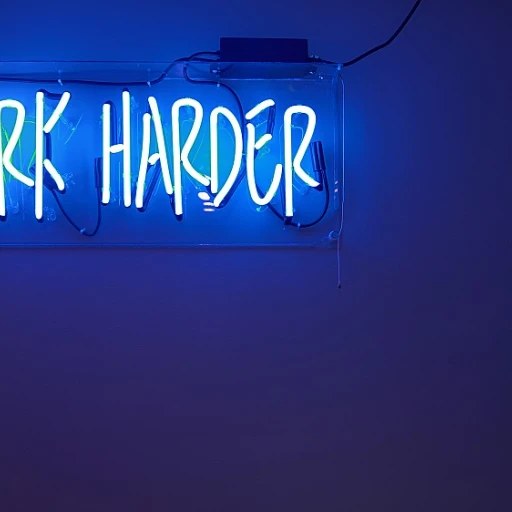
The Role of HR in Modern Organizations
The Heartbeat of Organizational Success
Human resources play a pivotal role in modern organizations, acting as the backbone for fostering a fruitful workplace environment. This integral division within any company channels efforts into ensuring that employees feel valued and that their contributions receive the recognition they deserve. By celebrating HR professionals, we're acknowledging their vital contribution in not only managing employee engagement but also in sculpting the company culture. Their strategic influence impacts our experience at work, facilitating professional development and maintaining balance within teams. In every organization, the human resource department is tasked with complex roles that are essential in driving business growth. From recruiting top-tier talent to ensuring compliance with employment laws, these professionals day in and day out help sustain organizational harmony. Moreover, they actively participate in acknowledging the hard work of employees and aim to create a supportive environment that prioritizes mental health and appreciation. Every year, companies around the world observe a day celebrating HR professionals, reminding us of their dedication and commitment to enhancing the workplace. It is on this day celebrated internationally, that we take a moment to thank them for their hard work. To grasp further insights into their significant role, take a look at a comprehensive analysis here.The Importance of Communication in HR
Empowering Through Clear and Effective Dialogue
In every professional environment, human resources plays a pivotal role in ensuring smooth communication flows that foster a cohesive workplace. The importance of communication within HR cannot be understated as it bridges the gap between management and employees, helping to enhance employee engagement and ultimately, improve company culture.
Clear communication from HR professionals ensures that all employees are aligned with the organization's goals, policies, and values. It not only keeps the information flow transparent but also helps in building trust and appreciation within the team. HR professionals facilitate this by crafting top-notch corporate messages and providing platforms for open dialogue.
Human resource communication is particularly vital on professional days such as the International Day dedicated to HR professionals. During such events, HR can use their skills to celebrate professionals, honor their contributions, and reinforce the values of appreciation and recognition throughout the company. These occasions remind employees that their hard work is valued and encourage them to feel more connected to the organization.
Strengthening the Workplace Environment
Strategic communication by HR teams also plays a critical role in employee mental health and professional development. Regular updates and feedback mechanisms allow workers to stay informed and express concerns, leading to a healthier work environment.
To further build this environment, HR professionals can introduce innovative ways to celebrate professional achievements and milestones. By doing so, they highlight the importance of recognizing hard work, thereby not only motivating employees but also aiding in talent retention.
Challenges in HR Communication
Overcoming Key Obstacles within Human Resources Channels
In the rapidly evolving landscape of modern organizations, HR professionals face an array of challenges in communication that can impact the overall health of a workplace. Effective communication is not just about disseminating information—it's about creating an environment where employees feel valued and engaged, which can be particularly challenging due to diverse work environments and ever-changing employee expectations. Communication barriers can arise from various aspects:- Cultural and Language Differences: As companies embrace a more global approach, the workplace has become increasingly diverse. It is essential for HR to navigate cultural nuances and language differences to ensure everyone feels included and appreciated on professional days.
- Information Overload: With the constant influx of communications through emails, social media, and other platforms, important messages can get lost. HR needs to develop concise and engaging communication strategies that keep employee engagement high without contributing to the overwhelming tide of information.
- Remote Work: The rise of remote work poses additional challenges. HR must adapt their strategies to ensure clear and consistent communication with remote employees, keeping them integrated with the rest of the team and aligned with the company culture.
Innovative Communication Tools for HR
Embracing Technology for Effective HR Communication
In today's fast-paced business environment, human resources professionals are increasingly turning to innovative communication tools to enhance their role within organizations. These tools not only streamline processes but also foster a more inclusive and engaging workplace culture. As we celebrate the hard work of HR teams, it's essential to recognize how technology is reshaping their communication strategies.
One of the top ways to celebrate professional development in HR is by integrating digital platforms that facilitate seamless communication. Tools like Slack, Microsoft Teams, and Zoom have become staples in many organizations, allowing employees to connect and collaborate regardless of their physical location. These platforms help HR professionals maintain a consistent line of communication with employees, ensuring that everyone feels valued and informed.
Enhancing Employee Engagement Through Digital Channels
Social media and internal communication apps are also playing a significant role in boosting employee engagement. By leveraging these channels, HR can share updates, celebrate professional milestones, and promote company culture. This not only helps in building a sense of community but also supports mental health by providing employees with a platform to voice their opinions and concerns.
Moreover, the use of AI-driven chatbots and automated systems can assist HR teams in handling routine inquiries, freeing up time for more strategic tasks. This shift allows HR professionals to focus on initiatives that drive employee appreciation and development, ultimately contributing to the long-term success of the organization.
Looking Ahead: The Future of HR Communication
As we look to the future, it's clear that the integration of innovative communication tools will continue to evolve. Organizations that prioritize these advancements will not only enhance their HR functions but also create a more dynamic and responsive workplace. By staying ahead of the curve, HR professionals can ensure that their teams are equipped to meet the challenges of tomorrow, fostering a culture of continuous improvement and appreciation.
Case Studies: Successful HR Communication Strategies
Real-Life Examples of Effective HR Communication Strategies
In the dynamic world of human resources, communication plays a crucial role in fostering a positive company culture and engaging employees effectively. An organization’s ability to implement successful HR communication strategies can significantly impact the workplace environment and employee morale. Let’s explore some real-life examples where HR professionals have excelled in communication.- Employee Engagement Initiatives: Companies that prioritize open dialogue and feedback with their teams often see increased employee engagement. This could involve regular town hall meetings where employees are encouraged to voice their opinions and contribute ideas. Additionally, digital communication platforms enable teams to stay connected and engaged, even in remote work environments.
- Celebrating HR Professionals: On the professional day dedicated to recognizing HR professionals, organizations have found innovative ways to celebrate and appreciate their hard work. These celebrations can include social media shout-outs, recognition awards, or a special day of appreciation where team members highlight the impact of HR professionals on their work life.
- Tailored Communication Tools: Some companies have successfully adopted customized communication tools that cater to their unique organizational needs. For instance, an internal newsletter may be used to share updates, highlight top posts, and feature stories that showcase employee achievements. An intranet platform offers another means to foster community within a large organization.
- International Communication: For multinational corporations, bridging cultural and geographical gaps is vital. Successful HR teams have implemented strategies for clear communication across multiple languages and time zones, ensuring every employee feels valued and included in the conversation.













